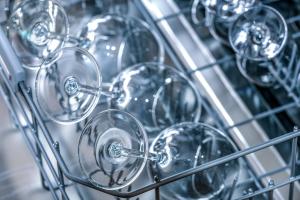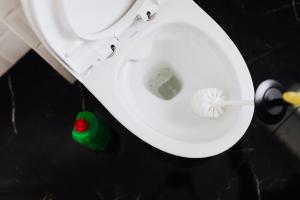
Softened water in your home brings numerous benefits, including improvement in skin conditions, reduced cleaning time, softer and smoother hair, tastier food and water, better appliance health, and so much more. But what’s the impact of softened water on your boiler?
If you’re upgrading your boiler or installing a new one, you’ll want to ensure that it’s compatible with your water softener system. We understand that investing in such crucial appliances can be costly, so it’s only natural that you want to ensure its longevity and performance.
Let’s explore how running softened water through your boiler can affect its health and overall performance.
Can I Use Soft Water with My Boiler?
Although there has been some concern about the negative impact of soft water on boilers, such as corrosive damage, it is actually safe to use artificially softened water in boilers.
In regions like Scotland, Wales, and Cornwall, naturally occurring soft water tends to be notably harsh and corrosive due to its lower pH level. However, when water is softened through a process called ion exchange using water softeners, it loses its corrosive properties.
This just goes to show that installing a water softener holds numerous benefits for your home - even if you live in a soft water area!
However, when it comes the your boiler's primary/main circuit, this is where things can get a little tricky, or aren’t so straightforward.
Certain boilers may not be suitable for softened water (ion exchange) in the main circuit. So, if in doubt we always recommend checking with the boiler’s manufacturer. If your boiler isn’t recommended for use with softened water, it’s advisable to fill the heating system with unsoftened mains water.
This can be done by temporarily opening the bypass valve on the water softener installation plumbing during filling. Or, establish a separate mains water supply directly to the heating system’s filling loop or feed and expansion tank.
It’s always best to check with your boiler’s manufacturer for guidance on this, so they can provide you with the correct information and recommendations to avoid damage to your boiler.


Can I Use a Water Softener with a Combi Boiler?
The main difference between a combi and a conventional boiler is that a conventional boiler has a hot water tank that is separate from the cold water tank, whereas a combi boiler provides hot water and heat from the same unit.
So, can you run softened water through a combi boiler? Yes, you can. Most water softeners are compatible with combi boilers - but it’s always worth double-checking with your boiler’s manufacturer for peace of mind.
The Benefits of Using Soft Water in Your Boiler
Water softeners offer protection against limescale in your home, including your boiler. Here are some benefits that softened water can have on your boiler:
- Reduced limescale buildup in the boiler’s heat exchanger.
- Increased flow rate of hot water delivered to areas of your home.
- Ensures maximum levels of efficiency.
- Increases your boiler’s lifespan.
- Lower maintenance costs.
- Improved performance.
- Reduced energy consumption.
- Environmental benefits (reduces the use of harsh chemical descaling agents).
Water softeners play an important role in improving the quality of water and your appliance’s performance in your home.
If you’d like to learn more about the benefits of water softeners or have any questions regarding their impact on boilers, contact our friendly team today. We’re more than happy to help!










